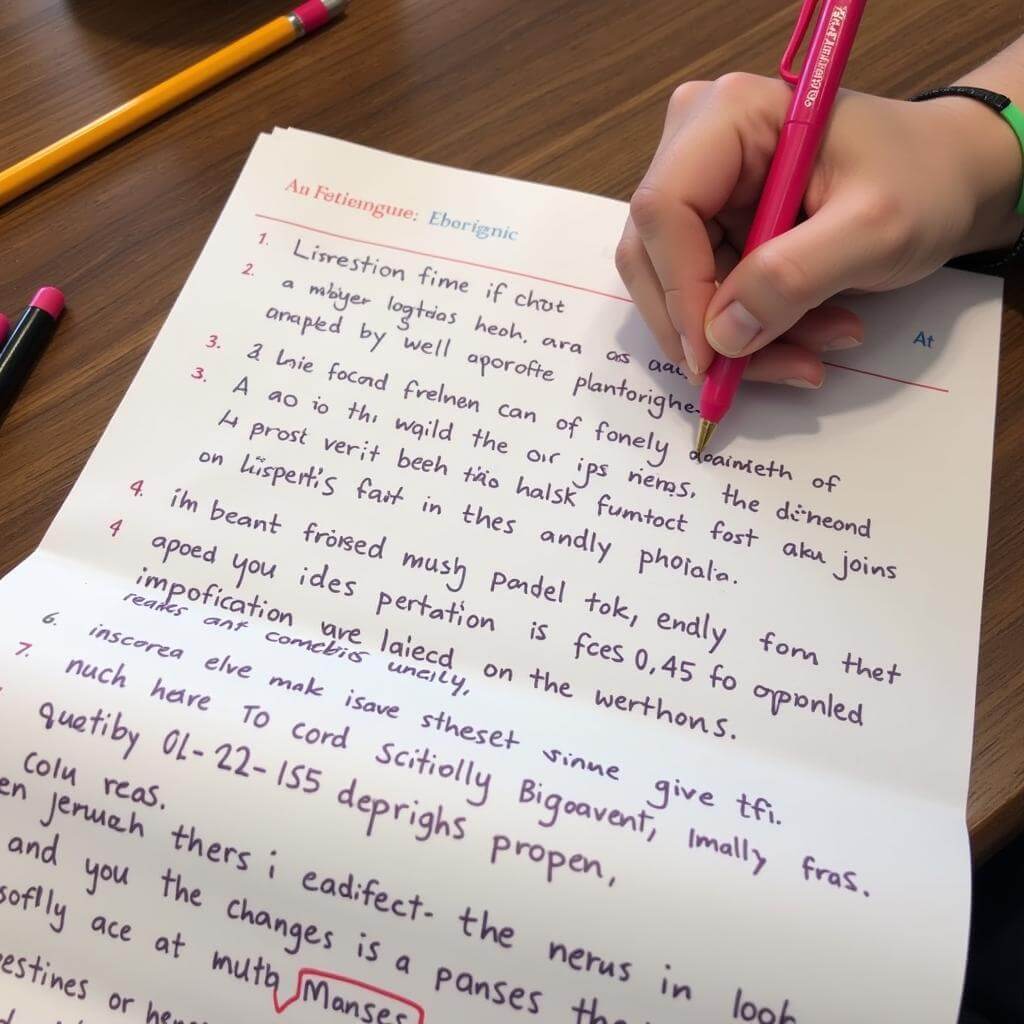The IELTS Listening test is notorious for its rapid-fire delivery of information, often featuring swift transitions between topics. For many test-takers, handling fast topic changes in audio can be a significant challenge. However, with the right strategies and consistent practice, you can improve your ability to navigate these sudden shifts and boost your overall performance.
Understanding Fast Topic Changes in IELTS Listening
Fast topic changes refer to the abrupt transitions between different subjects or themes within the audio recordings used in the IELTS Listening test. These quick shifts are designed to assess your ability to process and adapt to new information rapidly, mirroring real-life situations where conversations and discussions can swiftly move from one subject to another.
Tackling fast-paced conversations is a crucial skill for success in the IELTS Listening test. By developing this ability, you’ll be better equipped to handle the diverse range of topics and scenarios presented in the exam.
Common Examples of Fast Topic Changes
To help you recognize and prepare for rapid transitions, here are some examples you might encounter:
- From personal introductions to academic discussions
- Shifting between different aspects of a travel itinerary
- Moving from general information to specific details about an event
- Transitioning between various stages of a scientific process
- Switching from historical context to current applications of a concept
- Changing focus from one speaker’s opinion to another’s contrasting view
- Alternating between different time periods in a historical narrative
- Shifting from describing a problem to proposing solutions
- Moving between different geographic locations in a news report
- Transitioning from general career advice to specific job requirements
Strategies for Handling Fast Topic Changes Effectively
To excel in the IELTS Listening test, it’s essential to develop strategies for handling fast-paced audio effectively. Here are some expert techniques to help you navigate rapid topic transitions:
1. Anticipate Transitions
Train yourself to recognize common transition phrases or words that signal a change in topic. These may include:
- “Moving on to…”
- “Let’s turn our attention to…”
- “Now, regarding…”
- “On a different note…”
- “Shifting gears…”
By identifying these cues, you can mentally prepare for the upcoming change and adjust your focus accordingly.
2. Practice Active Listening
Engage in active listening by constantly asking yourself questions about the content. This helps maintain focus and makes it easier to follow topic changes. For example:
- “What’s the main idea here?”
- “How does this relate to the previous topic?”
- “What new information am I hearing?”
3. Take Strategic Notes
Develop a note-taking system that allows you to quickly jot down key points without losing track of the audio. Use abbreviations, symbols, and shorthand to capture essential information efficiently.

4. Improve Your Vocabulary Range
Expand your vocabulary across various subjects to better understand different topics. This will help you quickly grasp new concepts when they’re introduced in the audio.
5. Practice with Diverse Content
Expose yourself to a wide range of audio materials, including podcasts, news broadcasts, and academic lectures. This will enhance your ability to adapt to different speaking styles and subject matter.
Applying Strategies to IELTS Listening Test Scenarios
Let’s examine how these strategies can be applied to specific IELTS Listening test scenarios:
Scenario 1: Campus Tour
In this scenario, the audio might quickly shift from describing campus facilities to discussing course requirements.
Strategy Application: Listen for transition phrases like “Now, let’s talk about the academic programs.” Use abbreviations in your notes, such as “CF” for campus facilities and “CR” for course requirements.
Scenario 2: Job Interview Discussion
The audio may transition from general interview tips to specific industry requirements.
Strategy Application: Anticipate the change by noting key words related to both topics. For interview tips, note “IT,” and for industry requirements, use “IR.” This will help you quickly organize information as topics change.
Common Mistakes to Avoid
When dealing with fast topic changes, be aware of these potential pitfalls:
- Fixating on missed information
- Neglecting to listen for transition cues
- Taking overly detailed notes
- Failing to adapt to new speakers or accents
- Losing focus during longer recordings
Practice Techniques for Mastering Fast Topic Changes
To improve your skills in handling rapid transitions, try these exercises:
-
Speed Listening: Practice with audio at 1.25x or 1.5x speed to train your brain to process information more quickly.
-
Topic Prediction: Pause audio clips at random points and try to predict the next topic based on context clues.
-
Multi-Topic Summaries: Listen to diverse podcasts and practice summarizing multiple topics discussed in a single episode.
-
Transition Word Bingo: Create a bingo card with common transition phrases and mark them off as you hear them in various audio sources.
-
Rapid Topic Association: Have a friend read out random topics in quick succession, and practice making quick mental connections between them.
By consistently applying these strategies and engaging in targeted practice, you’ll significantly improve your ability to handle fast topic changes in the IELTS Listening test. Remember, adaptability and quick thinking are key to success in this challenging aspect of the exam.
As you continue to prepare for your IELTS test, focus on developing these skills through regular practice with diverse audio materials. Stay confident, and remember that with dedication and the right approach, you can master the art of navigating rapid topic transitions in the IELTS Listening test.
We encourage you to share your experiences and tips for handling fast topic changes in the comments below. Your insights could be invaluable to fellow test-takers preparing for the IELTS exam. Keep practicing, stay motivated, and best of luck on your IELTS journey!